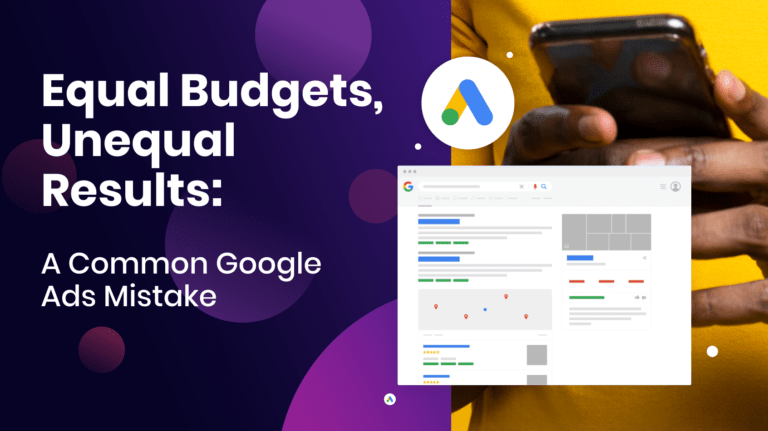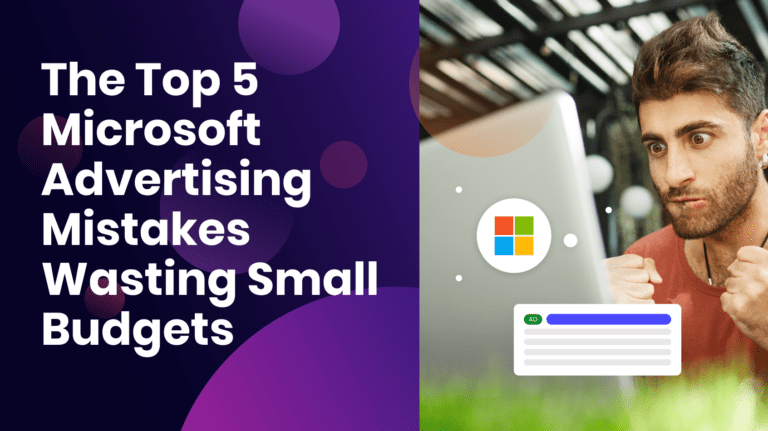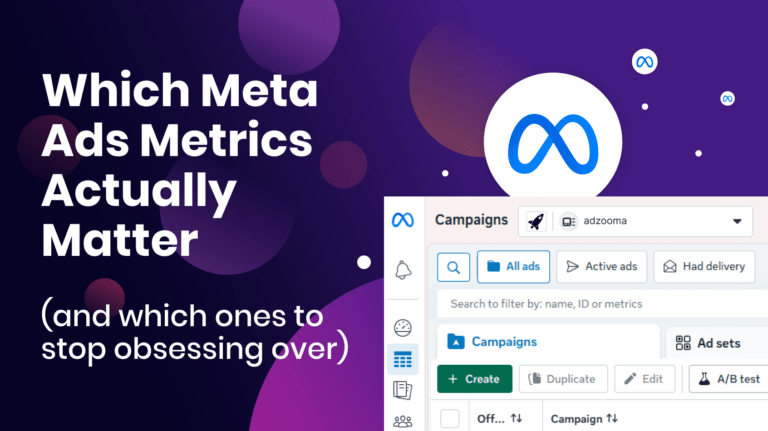Are you struggling to get your PPC campaigns off the ground? If it feels as though you’re chasing an impossible goal and your ads just aren’t performing, it’s time for a new PPC strategy.
The issue many businesses have is that they look at what’s worked for other companies and try to replicate it. They follow templated strategies made with generic businesses in mind. If you’re looking for PPC success, your strategy needs to reflect your company, its unique needs and, most importantly, has to be more than just a short-term fix.
Here’s how to create a strategy that will bring you PPC success both now and in the future.
Follow a winning structure
I’ve got a strategy structure that I believe everyone can relate to. And I think its success lies in how easy it is to understand. It seems common now for ‘strategies’ to be confusing and convoluted – to the point where no one really knows what the objective is.
If you want your PPC strategy to succeed, you need to be able to sum up your goal in one sentence.
How do you think screenwriters write such banging series? Episode after episode, they’re working towards this grand finale, and when you watch it, you realise how all the pieces come together; it’s because they know what they’re working towards from the beginning.
Each scene in each episode in each series is working towards a bigger plot. The same should be true for your PPC strategy – your ads, ad groups and campaigns should all sing from the same hymn sheet.
You see this example come to life in the popular TV sitcom Friends. The overarching storyline? That Ross and Rachel end up together. You can see how the writers work towards this goal in every episode.
What’s your business’ story arc? If you want to tell a tale of a bakery who becomes known for the best fresh food in town, you need to ensure everything reflects that – anything that goes off-topic, get rid. Once you have an all-encompassing goal, you’ll find it easier to write your ads and strategy because you know exactly where you’re going.
Don’t limit yourself to one platform
It’s easy to think PPC is strictly advertising on Google Ads. But there are loads of alternative sites you can advertise on which are often cheaper and more specific to your industry. Check out this article about the 16 best PPC alternatives for inspiration of where to start.
By introducing variety, you can ensure your strategy has longevity and make your budget go further. For example, did you know Bing’s average CPC is $1.54, 33% lower than Google Ads?
Try creating a Microsoft Ads account today to make the most of the different features it has on offer – you might be able to find new opportunities for your strategy.
Why did your last PPC strategy fail?

It’s important to look at previous mistakes in order to avoid making them again. Understanding why things didn’t work is the key to making the best changes.
Your strategy might not have been a complete flop, but if you’ve been left feeling a little lacklustre, here’s what the issue may have been:
1. It lacked focus
Like the TV show analogy, it’s important you have a goal so you know where you’re going. Otherwise, you’ll just be driving around and getting lost. A single focus is really important: trying to achieve lots all at the same time means you execute it all poorly.
Your keywords need a focus: avoid broad match. If you know that a particular keyword performs well for you, don’t be afraid to make a Single Keyword Ad Group. SKAGs are a great way to really boost your results and see what your campaigns can do without the noise of other keywords.
2. The customer journey was confusing
Even the best-written ads won’t guarantee you a sale. Why? Because if that ad takes you to a landing page which isn’t up to scratch, a user is likely to click back.
It’s imperative that your customer journey is cohesive, clear and as simple as possible. This means, if you have an ad promoting a new lawnmower deal, you should build a landing page dedicated to that. Don’t abandon users on your homepage where there are a million things going on – the more hurdles between them and the shopping cart, the increased likelihood of you losing them.
3. You’ve ignored ‘the little things’
On a similar note, you need to do the basics well. The foundations of your business should be solid, not rickety – they won’t take the weight of your future endeavours.
Ad copy should be short and snappy, promoting the benefits of your business. Copying your competitors just means you become a replica. Your page load speed should be as quick as possible to avoid people leaving. Your budget needs to be suitable for your industry. Understanding what actually matters to your ROI is key.
4. You’ve treated it as a sprint, not a marathon
An ugly truth: PPC is slow and hard work. Unless you use free tools like Adzooma and its innovative use of AI.
But, at the end of the day, you’re not going to bag yourself winning PPC campaigns overnight. The most successful are borne of testing, tweaking and patience. Spend time sharpening your skills, understanding the bigger picture and remembering that, if you want your PPC success to not be short-lived, you need to start slow and build it up.
Outsource where possible
PPC is likely just one arm of your marketing strategy. Personally, I think managing your PPC campaigns yourself (with the help of some great tech) is the way to go; it’s the most cost-effective approach which allows you total control. You don’t need to be an expert to learn the ropes, particularly with so many handy guides out there.
The best way to spend your budget is to outsource things that you simply have no way of facilitating in-house: your SEO strategy, design work, e-commerce store.
Adzooma Marketplace is home to hundreds of award-winning agencies who specialise in all types of digital marketing. Take a look and see which would be the best match for your business – you don’t have to do everything single-handedly.
Chase conversions, not leads
It’s easy to think your PPC campaigns are working if they bring you lots of leads. After all, 17% of marketers use PPC ads for lead generation. But are they high-quality? Having spreadsheets full of user data is no good unless they’re likely to buy.
In your strategy, you should identify how you are going to qualify success. It makes sense for this to be conversion-based. Optimising your cost-per-lead (CPL) is all well and good, until you realise your leads aren’t your ideal demographic. It’s important to make sure you’re highly-targeting your customers so that they’re more likely to buy.
From there, you can build audience lists based on your high-value customers (HVCs) and replicate your success. Focusing on your cost-per-conversion will help you identify whether your budget is being spent wisely.
Make the most of technology
As I touched on previously, the Adzooma platform has a lot to offer PPC users. I’ll start by saying the best bit – it’s completely free of charge. Using machine-learning, our PPC software helps you to manage, automate and optimise your Google, Facebook and Microsoft ad campaigns.
Because you can manage everything from one screen, Adzooma makes seeing the bigger picture easy – something that is key for assessing the success of your strategy. It also has loads of features which enable you to tick things off your goals quicker: set up automation rules, identify optimisation opportunities, see and understand key metrics. Everything can be done in just a few clicks, making PPC advertising much easier than doing everything manually.
Try the platform free today and see what impact it has on getting your new PPC strategy off the ground.
Make it unique to your business
Hopefully, I’ve sparked some ideas of how you can spice up your PPC strategy. After all, your strategy is your map to success – without it, you’re just running around crashing into things.
Spend some time working out your objectives and breaking them down into manageable chunks. The most important thing is to make your strategy unique to your business. If you’re ever stuck, there’s loads of helpful information across the Adzooma blog.
And, don’t forget to sign up to the platform to give your campaigns that extra boost. It is free, after all.




